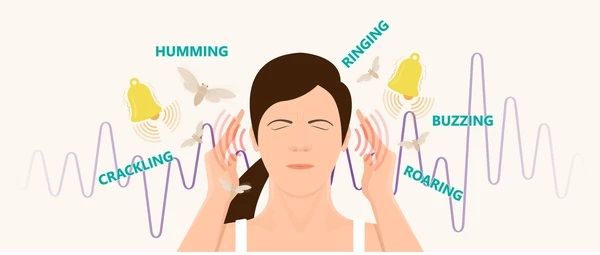What is Tinnitus

Tinnitus is a perceiving ringing, buzzing, humming, hissing sounds, or other noises in one or both of the ears, even when there is no external source of these noises. Tinnitus is a common problem that affects about 15-20% of people especially older adults.
Tinnitus is a subjective symptom, perceivable only by the person who is experiencing it. It is considered a symptom rather than an illness. For some, tinnitus may come and go but for some it can affect their ability to concentrate or even hear sounds that may cause significant impact in their everyday life.
Per research of neuroscientists at Georgetown University Medical Center (GUMC), tinnitus appears to be produced by an unfortunate confluence of structural and functional changes in the brain.
The absence of sound caused by hearing loss in certain frequencies, due to normal aging, loud-noise exposure, or to an accident, forces the brain to produce sounds to replace what is now missing. But when the brain's limbic system, which is involved in processing emotions and other functions, fails to stop these sounds from reaching conscious auditory processing, tinnitus results.
Causes of Tinnitus
Tinnitus is associated with many conditions. It may happen following a single exposure to high-intensity noise, and long-term noise exposure. Most often, tinnitus is also a symptoms of an ear problem, such as:
- Hearing loss
- Impacted Cerumen
- Medications
- Meniere's disease
- Middle ear infection
In addition, tinnitus may affect emotional health like feeling of depression, frustration, and irritability.
Management of Tinnitus
The approach to treating and managing tinnitus varies depending on its underlying cause.
Hearing Aids: For tinnitus stemming from noise-induced or age-related hearing loss, using hearing aids can address the hearing needs and often alleviate tinnitus symptoms.
Earwax Removal: Clearing excess earwax can sometimes improve tinnitus symptoms, particularly if the buildup is contributing to the problem.
Medication Adjustment: If certain medications are triggering the tinnitus, the doctor may recommend adjusting the dosage, switching to an alternative medication, or discontinuing the problematic drug altogether.
Noise Suppression Techniques:
. White Noise Machines: These devices emit ambient or static sounds, which can effectively mask the ringing or buzzing associated with tinnitus, providing relief.
. Masking Devices: Similar in appearance to hearing aids, these devices generate continuous white noise or other soothing sounds to divert attention away from the tinnitus sound.
Therapeutic Interventions:
Cognitive Behavioral Therapy (CBT): CBT can equip individuals with coping mechanisms to better manage and reduce the impact of tinnitus on their daily lives. Techniques may include relaxation exercises, mindfulness practices, and cognitive restructuring to alter negative thought patterns associated with tinnitus.
By addressing the underlying causes of tinnitus and employing various therapeutic strategies, individuals can often find relief and regain a sense of control over their auditory experiences.
Selected EasyHear hearing aid models feature a built-in tinnitus soothing program may help alleviate the sensation of ringing in the ears. It is advisable to seek the advice from an audiologist or hearing healthcare professional for a comprehensive hearing evaluation and the most suitable treatment options.
